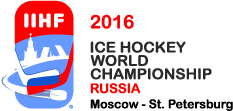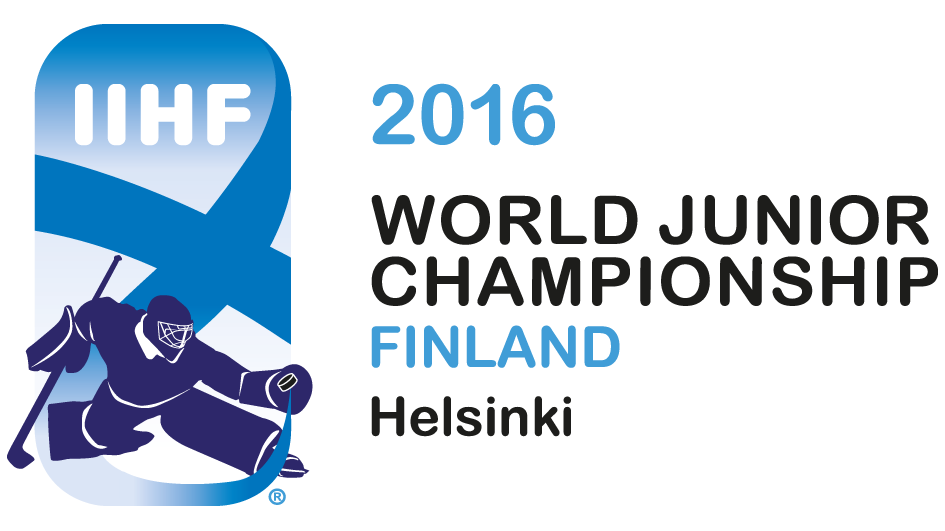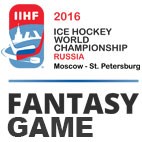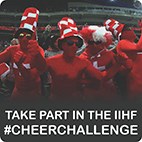The Professor
The Professor
Larionov about Worlds and Red Machine

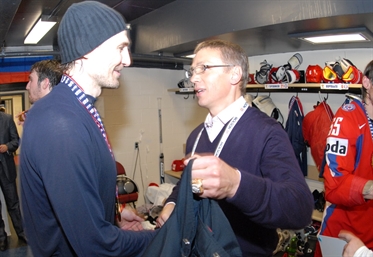 Legends: Igor Larionov (right) congratulates Sergei Fyodorov after Russia’s World Championship win in 2008. Photo: Matthew Manor / HHOF-IIHF Images
Legends: Igor Larionov (right) congratulates Sergei Fyodorov after Russia’s World Championship win in 2008. Photo: Matthew Manor / HHOF-IIHF Images
When calling Igor Larionov through a mobile app, one can see the following written on his avatar: Integrity is measured by the distance between your lips and your life.
“People talk a lot and feign, and don’t seize good action. That’s why I use this slogan,” explains Larionov.
In October 1988, the forward of CSKA Moscow wrote an open letter to Soviet national team coach Viktor Tikhonov, criticizing the legend in the magazine Ogonyok. This came as a real bombshell. The whole Soviet Union was shocked almost 30 years ago.
“I had the same motto at that time too. In order to develop hockey and fight errors, we need to be absolutely honest. We need to respect any opinion. If I see something wrong, I denounce it openly,” he says.
Larionov became a four-time world champion (1982, 1983, 1986, 1989). The Soviet team never lost any game in these tournaments (38 victories and 2 ties). Twice – in 1983 and in 1986 – the All-Star Team of tournament consisted of the Green Unit: Fetisov – Kasatonov, Krutov – Larionov – Makarov.
“I remember the first World Championship in Finland the most. Many things were new. We had very strong opponents. Wayne Gretzky and Bill Barber were playing for Canada. But we became champions,” he says.
The KLM Line then scored 30 (14+16) points in 10 games. Nobody was able to win against the Big Red Machine. However, a scandal broke out in the last game. The Soviet national team just had a scoreless tie with Czechoslovakia and therefore Canada had to settle for bronze.
“We had secured the gold medal already before the match with Czechoslovakia. We had no agreement to avoid scoring. You cannot get out on the ice and fool people,” Larionov says about the situation.
From the 1986 IIHF Ice Hockey World Championship, the last time the Soviets/Russians won on home ice, in Moscow, Larionov has different memories.
“Chernobyl. The accident occurred at the nuclear power plant on 26th April. Our last game against Sweden was on 28th April. We won the gold and went for a banquet. Some Swedish guys told me that a very serious catastrophe happened in the USSR.
“I asked: ‚Which catastrophe?‘ Only later in the evening of the same day we got a short report from the TASS agency. No one told us about the tragedy in our country.”
Igor Larionov was denied the right to leave the country that year. Before the World Championship he was told: “Your passport lies in the net of your adversary.”
“I did not travel abroad for a whole year. I was not told the reason. It would be great to see the archives now. Which case was fabricated against me? I heard one version, but I don’t want to talk about it. I have no proof.
“That is how we lived 30 years ago. You look back and understand how everything has changed.”
1986. Spring. Perestroyka. Difficult times. But at every game of the Soviet team 12,000 spectators filled the Luzhniki Sports Palace.
“I do not understand people saying that they don’t go to the stadium. If the team plays well there will be a full house in any city. We gave them hockey, based on game spirit. Spectators came to see us as if they were attending a spectacle. Hockey players were like actors who created masterpieces on the ice. I would happily spend money to see such games myself,” he says.
38 wins and 2 ties. Is it true that it was almost impossible to defeat the Soviet team in the World Championship at that time? The Big Red Machine was like basketball’s “Dream Team” at the Olympics – with Michael Jordan, Magic Johnson, Larry Byrd. Or is it because few professionals came from the NHL at that time?
“I never classify tournaments as strong and weak. Whether it is the Gagarin Cup or the Stanley Cup, the World Championship or the Canada Cup - a victory is a victory. You achieve it through hardships. Sometimes everything is decided in one game. You lose and you go home.
“You must not disrespect the opponent. There are real people playing. Accidents may always happen when the puck does not find the nets. Remember the Olympic Games of 1980 in Lake Placid,” he says about the Soviet team in the ‘80s.
“The USSR team was not like the Dream Team. We were isolated. We knew that the NHL existed where good players played. But there was no advertising like around basketball players.
Now the whole world knows LeBron James and Kobe Bryant, their opponents look small next to them. The USSR national team was spun in Europe. But we rarely went to North America and they had not heard much of us.”
Igor Larionov was inducted in the IIHF Hall of Fame in 2008. The Russian team beat Canada that same day, winning the first gold at the World Championship in 15 years. Larionov visited the locker room and saw how everyone had gone crazy from happiness.
“When you don’t play, everything feels differently. I was glad that our guys found the strength and won this final with a score of 5-4. We were lucky in overtime as Rick Nash shot the puck out of play and was assessed a penalty for delaying the game. This should not have happened. But we took it as an asset. Russia became the champion. That was a great achievement for our hockey,” he remembers.
“I’ll be honest, usually it is impossible to win such a game. After the final, I met the Canadian coach Ken Hitchcock and asked what happened with the Canadians in the third period? He answered: ‘I don't understand it either. We started to defend the score too early.’ The Russian team felt it and won the gold.”
Today Larionov works as a player agent in hockey. It’s no secret that Nail Yakupov is among his clients. But few know that Larionov also worked with Dallas star and 2015 world champion Tyler Seguin.
“I worked with Tyler when he entered the Ontario Hockey League at 17 and was getting ready for the NHL draft. I told him many things. For example, Seguin was a centre. But many clubs wanted to see him on the wing. I explained to Tyler that it is difficult for a young hockey player to play in the NHL because the young ones are not trusted with the centre position. It is a great responsibility,” he says.
“I told him if he proves himself on the wing, it will be a good start in the new league. And he can always be switched to the centre when the position becomes free.”
Everyone knows Larionov’s nickname, the Professor. But, who was his professor in hockey?
“Vladimir Shadrin, Spartak Moscow,” he replies. “I never played with him. But I always learnt when watching the great centre.”
Back to Overview

